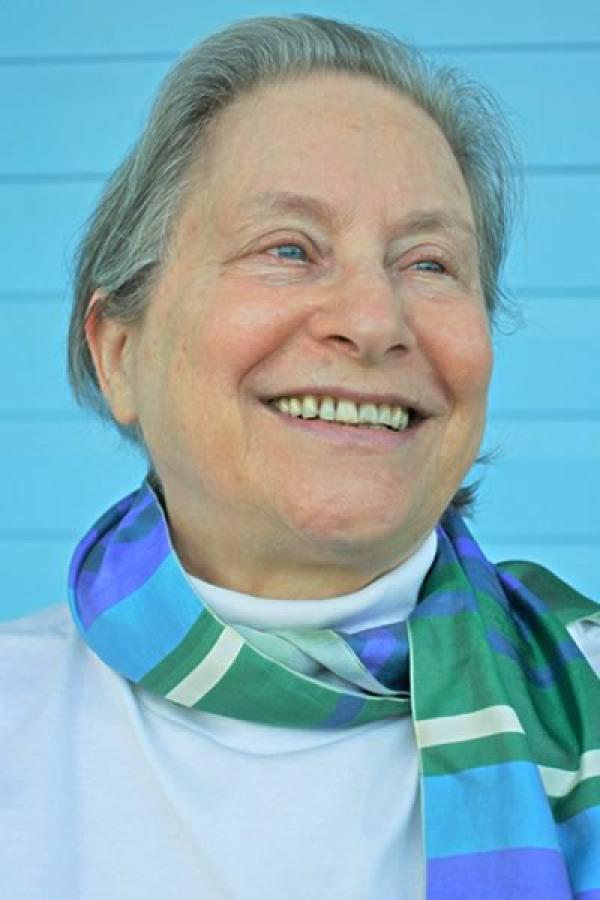Janine Beichman

Photo by Takeo Yamamoto
Bio
Janine Beichman received her doctorate from Columbia University, specializing in Japanese poetry. Her publications include biographies of Masaoka Shiki and Yosano Akiko, a translation of Ōoka Makoto's anthology of Japanese poetry and a volume of Ōoka's own poems, as well as her original Noh play Drifting Fires.
My long-term project is to inscribe Yosano Akiko, one of the giants of modern Japanese literature, on the map of world poetry in the 20th century. The two pillars of this project are biography and translation. Embracing the Firebird: Yosano Akiko and the Birth of the Female Voice in Modern Japanese Poetry, my earlier book, was a biographical study of Akiko up to age 22 and contains more than 200 translations of Akiko's earliest poetry. But as she matured, Akiko's output grew so vast and her activities so various that doing justice to her poetry within the confines of a biography is impossible.
The poetry translated in the the book that the NEA grant supports, tentatively titled Yosano Akiko:The Ripening Years, dates from 1904 to 1919, when Akiko was at the peak of her participation in Japanese cultural life as poet and critic. In the middle of this timeline comes a blip, her six-month voyage to Europe in 1912, which inspired a deep interest in social and political issues and gave birth to a treasure trove of poems, essays, and memoirist writings. Through all this activity, poetry remained both the seed and the fruit of Akiko's spiritual life. She wrote every day, recording her thoughts and feelings almost on the fly, in a notation spontaneous, compelling, and sometimes tantalizingly obscure. After this volume of her translated poetry, I plan another, taking her from 1920 to her death in 1942 and the posthumous volume that some consider the summit of her achievement.
The NEA grant enables me to devote myself to this project singlemindedly, without having to take on less important work. It also represents a vote of confidence, giving me hope of bringing Anglophone readers one step closer to welcoming Yosano Akiko into the pantheon of great world writers.
"Sleeping Alone"(Hitorine) by Yosano Akiko
[translated from the Japanese]
My good husband away,
what shall I wear to sleep in alone?
The sober nightdress all Japanese women
wear is dreary,
a shape for outcasts, a sketch of Death,
too dull even for the children.
No, I’ll wear silk crepe
dyed the red blush of dawn,
a kimono robe that touches the
skin like heavy mist falls on
flowers, and makes me glad,
each time I wear it, that I was
born a woman.
The silken robe’s hem trails sideways
and the collar begins to open
and as I lightly bring the sides
together I feel myself press down on
a heart heading back to the aimless
yearning of youth.
And then what I like so well is
how the smallest motion of the silken robe
lit up by candlelight has a dream-like
beauty that makes me catch my breath
even in this bedroom
without you.
One more look at each sleeping child,
and then I snuff out the lamp and
in the chilly February bed wrap the hem
around my calves and modestly bend my
legs. It’s strange—but as I slip under the quilts
my heart returns to the days
when I was a girl and first
loved you.
My traveller husband,
Are you sleeping now in France?
If a bird of paradise comes
into your dreams, it is me.
Translation ©copyright Janine Beichman 2018
About Yosano Akiko
Although little known outside of Japan, Yosano Akiko (1878-1942) is considered one of the giants of pre-war modern Japanese literature. Her oeuvre includes more than 20 volumes of poetry, as well as essays, criticism, memoirs, children's stories, plays, and translations of classical Japanese literature into modern
Japanese. The mother of 13 children, Akiko is known for her exploration of such themes as love, beauty, freedom, and the natural world. This volume will showcase her poetics and personal development through several hundred of her best poems, both free verse and the 31-syllable tanka. The aim of the project is to put Yosano Akiko where she belongs: on the map of world poetry in the 20th century.

